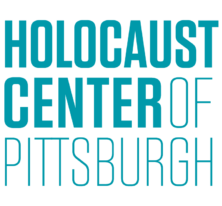Raising Active Bystanders: A Teacher Training with Dr. Ervin Staub
Thursday, September 13, 11am-1pm
Holocaust Center of Pittsburgh
826 Hazelwood Ave, Pittsburgh PA 15217
ACT 48 Credit Available
REGISTER: https://jfedpgh.org/staub-training
On Thursday, September 13, Dr. Ervin Staub will conduct a teacher training about how teachers can shape the school environment, leading a discussion on how we raise caring, non-violent, morally courageous children, in general and in schools.
Dr. Staub is a psychologist who has dedicated his life to examining the roots of goodness (caring and helping) and the roots of violence, especially genocide and mass killing, and who applies his research to real world interventions.
A bystander is defined as “one who is present but not taking part in what is occurring.” Traditional Holocaust education has made much of the idea that bystanders were key in the success of the Nazis and their collaborators in perpetrating the Holocaust. Dr. Staub has adopted a more nuanced approach to bystanders, splitting them into active and passive bystanders. His work is about encouraging people to be active bystanders, individuals who take steps to make a difference when they see an immoral act taking place.
As Dr. Staub explains, “I was to be killed in the Holocaust, and there were important bystanders in my life who showed me that people don’t have to be passive in the face of evil.” Those people in his life included the Christian woman who risked her life to shelter Dr. Staub and his sister while 75 percent of Hungary’s 600,000 Jews were killed by the Nazis. Through this lens, Dr. Staub will discuss how students can become active bystanders who stop harmful behavior by others.
This event is open to teachers of all disciplines at all stages of career. Price of the training is $10; With Act 48 credit, $25.
Dr. Staub will also be holding a public talk in the evening. Learn more.
About Ervin Staub: Dr. Ervin Staub is a professor of psychology, emeritus, at the University of Massachusetts Amherst, and the founding director of the doctoral program there on the psychology of peace and violence. His own experience as a Holocaust survivor has influenced his interest in studying the roots of violence between groups, especially mass killings, genocide, and terrorism.
Dr. Staub has worked in the Netherlands to improve Dutch-Muslim relations; in Rwanda, Burundi and the Congo to promote healing and reconciliation after genocide; and developed a program for California police in the wake of the Rodney King incident in Los Angeles. He has served as an expert witness at the Abu Ghraib trials, and has written numerous books on the source of violence and how to prevent and heal from it.
